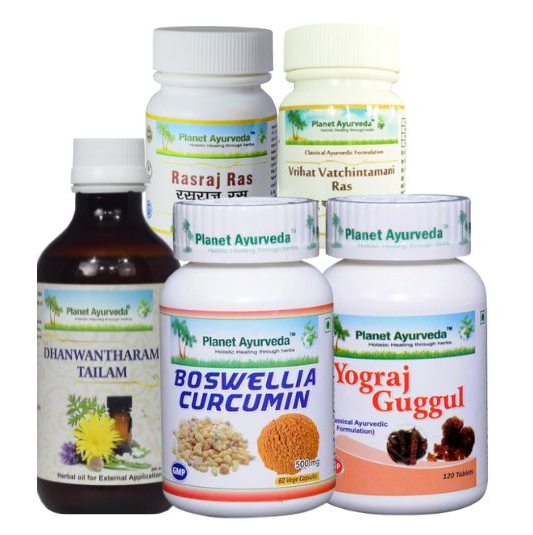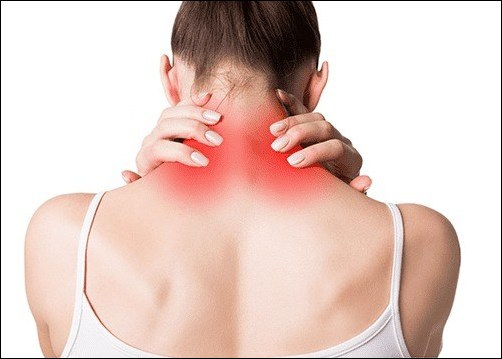Diagnosis Of Oromandibular Dystonia (OMD)Treatment In Ayurveda
Abstract
Dystonia refers to a movement disorder that leads to involuntary movements of muscles. It can affect one, two, or several body regions (muscles) simultaneously. The type of dystonia is described based on the region of muscles that are affected. The type of dystonia that affects the oral cavity (jaw, mouth, teeth, face) is known as Oromandibular Dystonia. Though Oromandibular Dystonia is a rare disorder, its prevalence is reported to be high. Through this article, you will get to know the causes, symptoms, diagnostic criteria, and treatment options in modernity. Also, you will get to know how you can treat Oromandibular Dystonia with Ayurvedic drugs.

Introduction
Oromandibular Dystonia is a neurological disorder that affects the jaw bones, mouth, and face muscles because of involuntary muscle contractions. This causes repetitive and twisting movements of the jaw. The muscle spasm can range in severity that may be painful. As this is a neurological disorder, any defect in brain nerves can cause these involuntary movements. Different people are affected in different ways by dystonia. Common facial areas seen doing abnormal involuntary movements in Oromandibular Dystonia are- Jaw, and tongue, and can also extend to the neck and eyes. Untreated Oromandibular Dystonia can cause certain complications including-
- Vision problem
- Physical disabilities
- Depression
- Stress and anxiety
- Social withdrawal
- Early detection and management are recommended to overcome these complications.
Ayurvedic Aspect
Oromandibular Dystonia is a neuromuscular disorder that is described to be due to the excessive accumulation of Vata Dosha in the body of the person. Vata is the main causative factor for such neurological, muscular, involuntary movement, and abnormal functioning of the body parts. The Vata accumulates due to the continuous practice of imbalanced and improper diet and lifestyle habits.
Accumulation of Vata in the body can cause several common disorders such as rheumatoid arthritis, but its excessive accumulation in the body turns into hazardous effects that can cause serious complications and disorders like hemiplegia, paraplegia, neuralgia, quadriplegia paksha ghat (paralysis of the whole body). Early diagnosis and control over excessive Vata are mandatory to arrest the progression of Vata dosha that can lead to severe disorders. Vataj dosha impacts the brain nerves and interferes with their normal functioning. It alters the brain signals and causes abnormalities among body parts.
Proper nourishment of nerves and balancing Vata dosha is important to step in the treatment of such neurological disorders, which is possible with natural herbs used by the ancient system of medicine that is Ayurveda.
Causes
The exact cause is a change in brain nerve cells working in Oromandibular Dystonia and the cause for these changes is not known by the scientist but according to Ayurveda the aggravation of Vata dosha is the cause for such changes and disorders.
The exact cause is a change in brain nerve cells working in Oromandibular Dystonia and the cause for these changes is not known by the scientist but according to Ayurveda the aggravation of Vata dosha is the cause for such changes and disorders.
- Oromandibular Dystonia is assumed to occur as a symptom of some diseases such as
- Parkinson’s disease
- Wilson’s disease
- Brain stroke
- Carbon dioxide poisoning
- Infections that have an impact on the brain
- Reaction to some drugs
- Brain tumor
Symptoms
Symptoms of Oromandibular Dystonia include
- Slurred speech
- Tongue protrusion
- Drooling
- Difficulty swallowing
- Difficulty chewing
Diagnosis
Various tests and investigations are performed to differentiate Oromandibular Dystonia from other disease symptoms
- Medical history
- Blood test
- Urine test
- MRI scan
- CT scan
- Electromyography (EMG)
- Gene test
Treatment
Medications and treatment used in Oromandibular Dystonia are
- Neurotransmitters- levodopa, diazepam
- Antidepressants
- Physical therapy
- Speech therapy
- Surgery- Deep brain stimulation
- Selective denervation surgery
Herbal remedies for Oromandibular dystonia by Planet Ayurveda
Ayurveda offers various herbal medications for the treatment of Oromandibular Dystonia manufactured by Planet Ayurveda. Our talented doctors prescribe pure herbal medications prepared by Md experts in our own pharmacy. These medications do not contain any added color, chemicals, or preservatives that are harmful to our bodies. We have tried our best to treat patients naturally with these pure herbal medications and have succeeded to a large extent.
Product List
1. Rasraj Ras
2. Yograj Guggul
3. Vrihat Vatchintamani Ras
4. Boswellia Curcumin Capsules
5. Dhanwantharam Tailam

Products Description
1. Rasraj Ras
These tablets contain Ras sindur (Purified mercury), Bhasma of Rajat (silver), Swaran (Gold), Vanga (tin), etc. These ingredients strengthen the brain nerves and muscles of the face to deal with those involuntary movements. Continuous intake of these pure tablets will ease the symptoms of Oromandibular Dystonia.
Dosage One tablet to be chewed with milk daily
2. Yograj Guggul
This herbal preparation contains wonderful herbs such as Ajwain (Carum copticum), Vidang (Embelia ribes), Chitrakmoola (Plumbago zeylanica), Guggul (Commiphora guggul), etc. These tablets have analgesic and anti-inflammatory properties that help to relieve Pain and inflammation in jaw bones and muscles. It soothes the brain nerves by improving blood circulation to the brain and upper facial region. These tablets balance Vata dosha and ease symptoms of Oromandibular Dystonia.
Dosage Have two Vatis two times daily.
3. Vrihat Vatchintamani Ras
This ayurvedic medicine contains pure Bhasma (calx) of Swarna (Gold), Rajat (Silver), and many other metals that are used in the management of certain neurological disorders like Oromandibular Dystonia. It nourishes the brain nerves and gives power to facial muscles that will ease the symptoms of Oromandibular Dystonia.
Dosage Have 1 Vati twice daily
4. Boswellia Curcumin Capsules
These classical capsules contain herbs that reduce swelling in joints and muscles, these herbs are- Shallaki (Boswellia serrata) and Curcumin (Curcuma longa). The capsules also enhance overall immunity because of the immunity-enhancing properties of these herbs. The herbs also improve blood circulation to the brain and nourish brain nerves which improves the condition of the patient.
Dosage Have 2 capsules twice daily.
5. Dhanwantharam Tailam
This is an oil preparation containing extracts of various potent herbs that are also used in the preparation of dhanwantharam tailam. These capsules are indicated in Vata rogas. Oromandibular Dystonia is completely a Vataj roga and pacification of Vata dosha is done with the help of these capsules.
Dosage To be applied locally on the affected area.
CONTACT PLANET AYURVEDA TO PROVIDE YOU THE COSTING / ORDERING AND DELIVERY INFORMATION AT – COSTING.PLANETAYURVEDA@GMAIL.COM OR CALL AT +91-172-5214040
Conclusion
Proper pacification of Vata dosha is only possible with proper diet and lifestyle management that excludes Vata vardhak Aahar and Vihar and certain herbal medications that directly balance tridosha in the body without any other side effects. The treatment options vary from one individual to another after the physical examination because the need of everybody is different. This is evaluated by a good doctor. You can contact us at www.PlanetAyurveda.com for any queries and to book your appointments.




